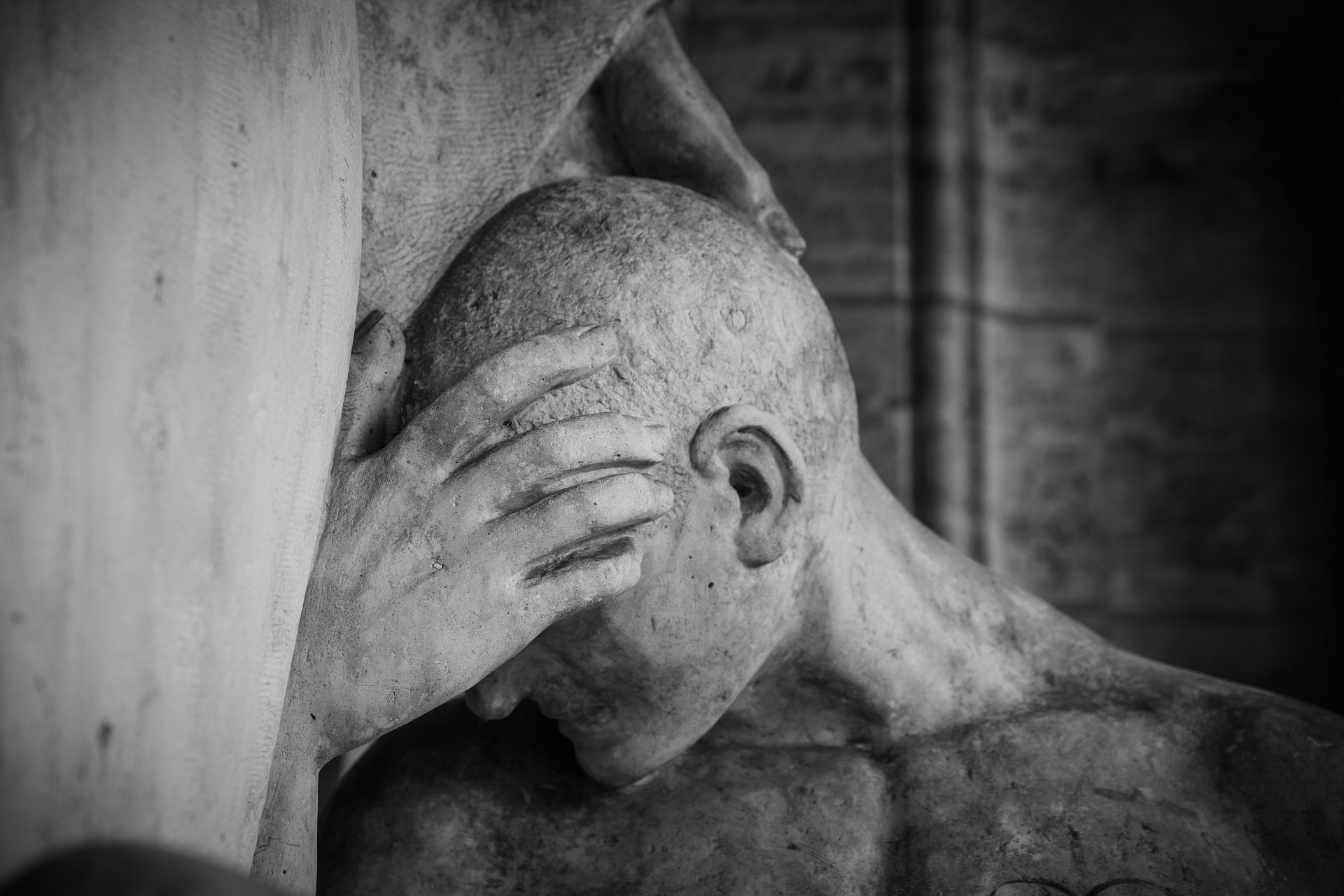Harboring Guilt

Guilt. It’s a vital tool for a person, political party, religion, or any other group to control people. It’s not just guilt about doing something wrong. It’s also guilt about doing something potentially wrong. Or potentially disappointing your leaders.
You could be faced with leaders that claim a direct connection to God, meaning that disappointing them is the same as disappointing God. Imagine the guilt for disappointing your creator. It could be anything else too, but guilt is an amazing control mechanism. Without guilt I really don’t believe that most religions would last. If you didn’t need to feel guilty about your behavior - or lack of behavior - why would you need religion?
My father was a master of guilt. It’s been some years since he died and even more since I actually spoke to him for the last time. Even though my relationship with my father was strange and complex, it’s also weird to loose a parent. My father had a huge impact on my life. Mostly negative. But I think maybe part of me thought that some day he would change and that there could be some type of relationship salvaged from the depths of nothingness.
It’s strange to think that the time since I last spoke to my father will only grow, never to shorten due to a call on a birthday or holiday. It’s human nature to think that there will always be another day, but there comes a point when there won’t be another day and there are no more chances.
One thing I’ve been thinking about a lot lately is the guilt I have struggled with from the time I was a little kid. Even with him gone and me out of his control for decades, guilt is a lasting memory of him and my life back then. It is a real, tangible impact he still has on my life even after he is gone.
I guess guilt can be a good thing. Maybe it helps us keep a lot of human behaviors in check. Those mass murderers or awful people they keep us glued to the screen during a TV series represent the antithesis of values we prize in humanity because of, partly or wholly, their lack of guilt. They could continue killing, abusing, and harming others. Guilt is useful and necessary for our human experiment to continue and thrive. It stops us from doing things that hurt others and leads us to make amends when we do. I believe that the entire human moral compass comes from guilt. Not from religion. Religion used it to its advantage and to control people. But at the core, at the deepest and darkest reaches of our being, it is guilt that drives much of our behavior.
There is a healthy amount of guilt and there is the unhealthy. I grew up deeply entrenched in the latter. I remember feeling guilty for just about anything I did in my life, but a lot of it had to do with the interactions I had with my father and the way I felt about God and religion - both means of control.
I remember my father saying when I was young to always put yourself in the shoes of someone else to see how they feel. Or at least try. Then you would feel guilt for doing something that wasn’t in this other person’s interest. It wasn’t until I was older that I realized this other person being referred to was my father and he told me that not because he was trying to mold me into a person that could have empathy and compassion, but into a person that would feel guilty for not doing what he wanted. And it worked.
When I was young my father used to stay up at night in despair at the many terrible things he faced. All of them are his own doing. But as he wailed into the night he would tell us (me, my older brother, and my mom) that it all was just a terrible coincidence or there were forces beyond his control out to get him. We would be tasked with staying up all night consoling him while he languished in bed. Our sole purpose was to make him feel better. So many nights I remember sitting at his bedside telling him it would be all right and that he wasn’t wrong and he was a victim. It would drag on until the very early morning and all I wanted to do was go to sleep. I had to be up early to work in his office, after all.
This started when I was seven years old and continued until I left.
But one thing I recall is that part of me really did feel sorry for him. Or so I thought. In reality, I felt guilty. I thought about how he was feeling and felt guilty for trying to get away or trying to not understand and not console him. He trained me well. I thought about how I would feel if it were me and that I really needed to be there for him.
I was seven! Why would I have even remotely been in his shoes? I should have been worried about school or playing with my friends, not talking my father out of threats of suicide for the 200th time.
But when you are instilled with guilt from a young age - from before you are old enough to understand anything or even know truly anything about yourself - all I could feel was guilty for not doing enough.
This immense feeling of guilt has pervaded my life ever since. Less so now, but it still rears its vicious head on many occasions. For decades I struggled. I never had self-confidence. I never “faked it until I made it” to try and get ahead and I never believed in myself enough to think I could actually get ahead in anything. I was timid and shy and introverted. I didn’t take risks or chances when I should have because I never imagined I could actually succeed.
I’ve moved on. Life is not as guilt ridden as it once was. Looking back, so much of the personal difficulties I faced was because of the torrent of guilt I harbored deep inside and from which is so difficult to escape.
